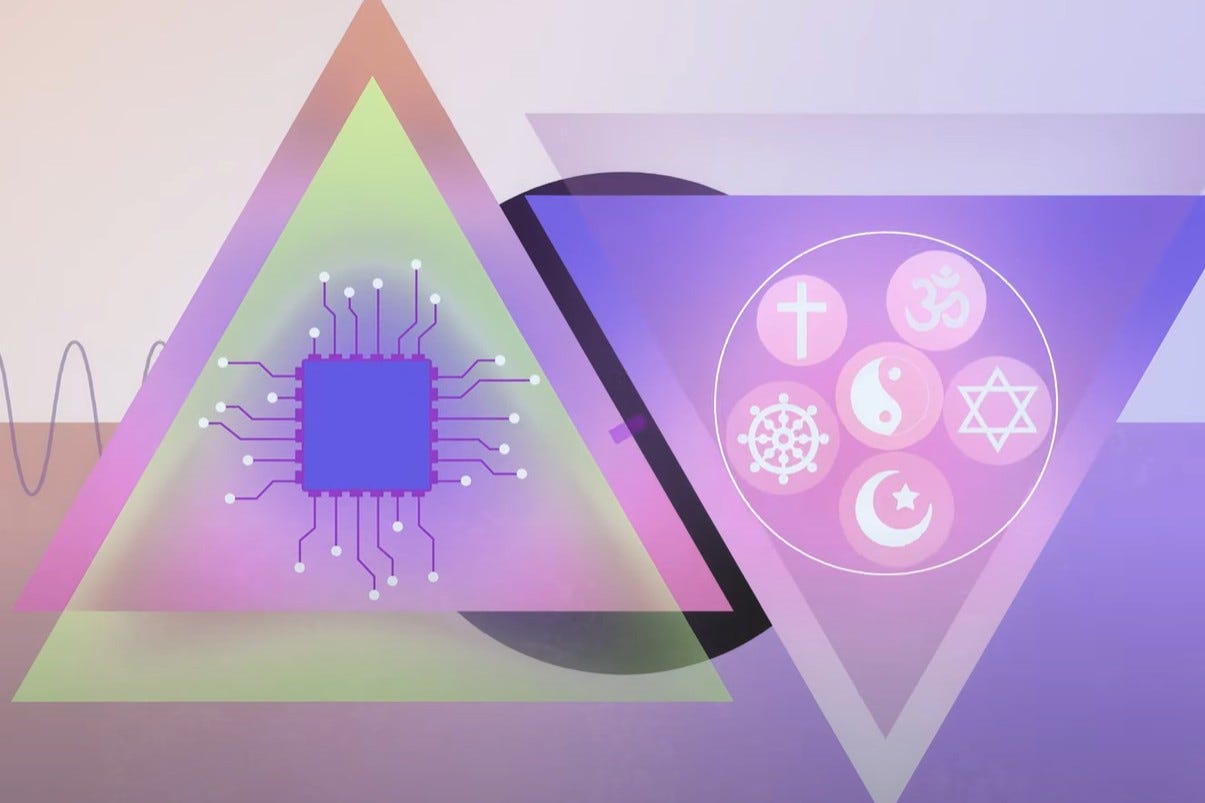Researchers ask, "Is AI making people less religious?"
Video + Research: Could automation be contributing to religious declines?
Over the past century, there has been a decline in religious affiliation. Now, researchers are exploring whether automation and AI have played a role in this shift. Joshua Conrad Jackson and his coauthors conducted several studies to investigate the connection between automation and religious belief.
Jackson and his fellow researchers examined the robot…




